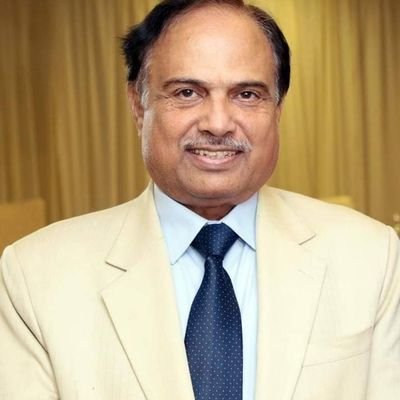8th Feb Elections will bring about a new Democratic Dawn
By Kanwar Muhammad Dilshad

A Supreme Court bench, visibly concerned, suspended the Lahore High Court’s December 13 order that had put a hold on the appointment of district returning officers (DROs), returning officers (ROs), and assistant returning officers (AROs) from the executive. Instead, the Supreme Court directed the Election Commission of Pakistan (ECP) to promptly release a schedule for the general elections for February 8, 2024, by Friday night, 15th December, 2023.
“Accordingly in the given circumstances and considering the constitutional and legal stipulation, the judgement of the LHC is hereby suspended,” said an order dictated by Chief Justice of Pakistan (CJP) Qazi Faez Isa.
Other members of the three-member bench were Justice Sardar Tariq Masood and Justice Syed Mansoor Ali Shah. Senior counsel Sajeel Shaharyar Swati represented the ECP.
The Supreme Court had taken up a hurriedly-moved appeal by the ECP assailing the LHC’s order soon after a meeting was held between Chief Election Commissioner Sikander Sultan Raja, CJP Isa, Justice Masood, Justice Ijaz-ul-Ahsan and Attorney General for Pakistan (AGP) Mansoor Usman Awan.
The meeting was held against the backdrop of 14th December’s ECP decision to halt a seven-day session to train the DROs, ROs and AROs on how to conduct the upcoming elections.
Since the CJP was leaving on a two-week vacation, and the timeframe within which the ECP was supposed to notify the election schedule had passed, an urgent hearing of the matter was deemed necessary.
The Supreme Court also issued notice to PTI’s additional secretary general Umair Niazi, who had approached the LHC, requiring him to explain why action should not be initiated against him under the Contempt of Court Ordinance 2003 read with Article 204 of the Constitution for disregarding the SC’s Nov 3 judgement under which it was decided by the president and ECP to hold the elections on Feb 8.
Mr Niazi had served as additional advocate general during the PTI government.
The top court regretted that the LHC judge, who suspended the appointment of DROs, ROs and AROs, had acted in haste disregarding the fact that all the chief justices of high courts had refused to lend judicial officers for the conduct of elections.
The order noted that the ECP had undertaken to issue the election programme “positively by Friday night” and that its notification of suspending the training course of the election staff would also be withdrawn.
The CJP noted that the LHC judge had passed the order for the whole of Pakistan, beyond his territorial jurisdiction and without referring to the Supreme Court’s judgement.
The SC regretted that the high court had suspended the ECP notifications in which the commission had even appointed its own officers for election duty and another three notifications where the government officers were put in place for the purpose of the election, at someone’s behest.
Initially, the ECP had written letters to the CJs of high courts, but they all had refused to provide judicial officers for the election duties.
Election Commission of Pakistan is on way that the electoral process is in track and the polls will be held as announced on February 8, 2024. The Election Commission of Pakistan has issued the election schedule as per section 57 of the Elections Act 2017.
Some political parties have accused their rivals of seeking to delay elections. One of them even called for a delay, citing the winter weather, ignoring the fact that elections in the past have been held on 3rd February 1997.
This is not sufficient reason to postpone the polls. Both past experience and present realities dictate that the elections will be held as per schedule.
Public opinion show that the people want elections on 8th Feb so that a legitimate, elected government is in place to get on with the constitutional job of governance and start to purposefully address the country’s many challenges. Especially fixing the economy to achieve the public worsening economic plight.
It has come to light that the Election Commission of Pakistan (ECP) has issued a memorandum to the Secretary Interior, requesting the deployment of 280,000 Army personnel to aid the Election Commission in ensuring Law & Order during the General Elections of 2024, in accordance with Article-220 of the Constitution.
The Federal Government is allocating funds of Rs. 57 billion for organizing and conducting General Elections. Additionally, an estimated Rs. 500 billion will be expended by 14,000 candidates for their election campaigns and related activities.
If election results are not in the country’s interest, it can be economically dangerous for the country. The country could reach bankruptcy due to the issuance and expenditure of such a large amount of funds. In the situation, if even one political party does not accept election results, then anarchy and confusion will arise, the consequences of which can be serious.
Chief of Army Staff was bringing investment of more than $50 billion in Pakistan, but the effort could not yield sufficient results in the circumstances. Considering all these facts on the ground, the remarks made by former Chief Justice Umar Ata Bandial regarding the election were important, that along with the Constitution, the facts on the ground were also very important. The decision to conduct the election under the supervision of the bureaucracy is correct because the judiciary does not hold polls in any country of the world.
According to the Indian election law, lawyers are not allowed to appear before the Election Commission of India. The candidate appears before the commissioner with their complaint and application. In India, if the election commission issues a notice to the chief minister, he appears himself instead of sending a lawyer. Returning officers in India are recruited from the bureaucracy. If returning officers are found involved in corrupt practices, the election commission has powers to dismiss them. During the election period in India, the returning officers’ ACRs are also written by the election commissioner, while it is not the case in Pakistan.
In India, if a member of the assembly is to be disqualified, there is no need to send a reference to the Speaker, like in Pakistan. It writes to the President who is bound to act. Disputes about disqualification in Pakistan take many months and years. The Chief Justice of Pakistan should form a commission after this election to empower the ECP. The Election Commission of India can invalidate any party but the ECP does not have the power. The Election Commission of India can ban a political party for violating secularism.
The ECP should be given powers to ban a party which attacks the ideological basis of the country and these powers should be determined by a commission formed by the Chief Justice of Pakistan.
A country facing an existential threat needs a strong representative government to deal with the challenges it confronts. The country needs political reconciliation and not polarisation. The irony is that our political leaders never learn from their own history. It is all about short-term interests rather than the goal of strengthening democracy.

